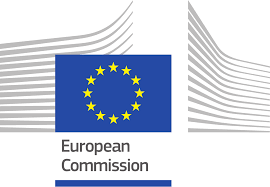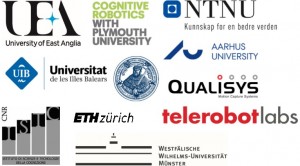Welcome to the DCOMM website.
DCOMM is a Marie Skłodowska Curie European Training Network funded by European Union (Horizon2020), grant agreement number 676063 (Horizon2020 – MSCA- ITN- 2015). DCOMM is a collaborative network comprising: the University of East Anglia, UK (coordinating beneficiary); University of Plymouth, UK; Norwegian University of Science and Technology, Norway; Aarhus University, Denmark; Universitat de les Illes Ballears, Spain; CNR Rome, Italy; ETH, Switzerland; Friedrich-Schiller-Universität Jena, Germany; University of Münster, Germany; Qualisys, Sweden; Telerobotlabs, Italy.
Project abstract:
Deictic communication is fundamental to understanding communication in both typical and atypical populations, and forms the key connection between language and objects/locations in the world. It is therefore critical to understanding human-human interaction, and human-system interaction in a range of technology applications – from mobile phones to cognitive robotics – and to the enhancement of clinical and educational interventions with typical and atypical populations. This ETN will train the next generation of scientists in the full range of multidisciplinary and cross-sectorial methods necessary to make significant progress in understanding deictic communication, with direct synergies between basic research and application. Training is structured around two interdisciplinary research themes – Understanding Deictic Communication and Deictic Communication in Application – both involving extensive and systematic co-supervision and collaboration across sites with key interplay between academic and nonacademic beneficiaries and partners. In turn we expect that a range of applications will be enhanced with increased usability, with associated societal and economic benefit. The training of the cohort of ESR fellows is based on innovative PhD training approaches, providing not only training in interdisciplinary methods, but also employing peer-assisted methods and the latest in educational innovation. This will produce a cohort of highly skilled researchers who will be highly employable given the potential contribution they will make to future research and innovation in the public and private sectors.
DCOMM will shortly be recruiting Early Stage Researchers for 13 different projects across Europe. More information can be found here.


![DComm-logo-Cyan[1] copy](http://www.kennycoventry.org/wordpress/wp-content/uploads/2015/12/DComm-logo-Cyan1-copy-300x81.png)
